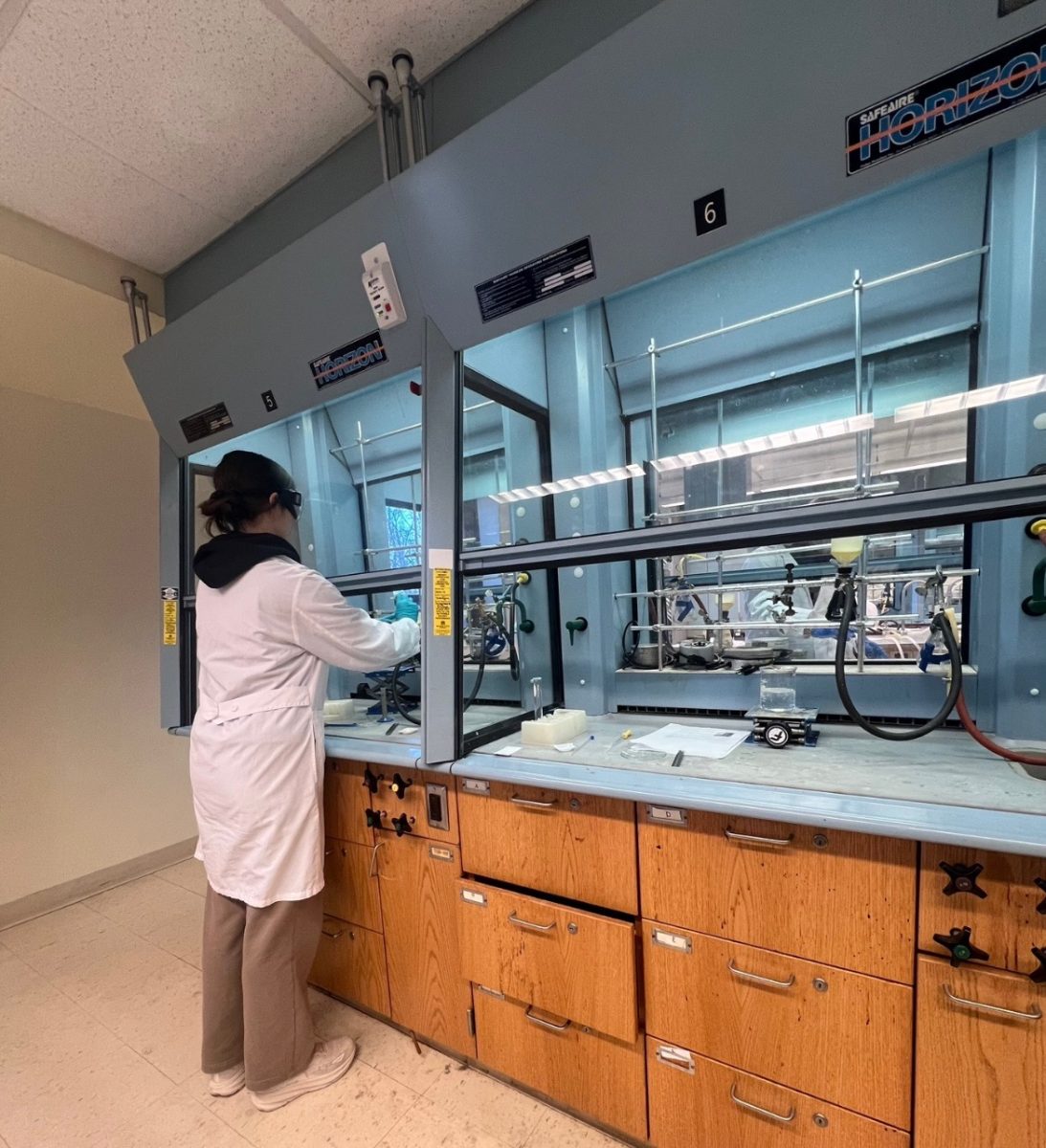
Guitar legend Eric Clapton has said his popular cover version of “Cocaine” is an anti-drug song. Marquette professor John Mantsch could probably describe his research on the drug the same way.
Mantsch, the biomedical sciences department chair, is conducting extensive neurological research toward ending people’s addictions to cocaine.
Mantsch began his research in 2003 with an initial grant of $1 million from the National Institutes of Health. Because of his success, NIH renewed his grant this summer with an additional $1.5 million allocated for research.
Mantsch and his assorted team of graduate and undergraduate students, post-doctorates and faculty collaborators said they have been making exciting steps toward understanding what causes relapse in some former cocaine abusers.
“Repeated use of drugs changes the hard-wiring of the brain such that you have interconnectedness between the reward and stress pathways, where it isn’t the case in someone who doesn’t use,” Mantsch said.
Mantsch said for some former drug users who are trying to get clean, stress will trigger a craving for the drug and, in turn, will trigger a relapse.
“We have been trying to understand the relapse reaction to stressful stimuli,” Mantsch said.
Mantsch said he has found anxiety in these users seems to be driven by a specific molecule: the corticotropin-releasing factor.
When a drug is administered that affects the uptake of this molecule, the urge to return to cocaine disappears in test subjects, he said.
Third-year neuroscience graduate student Jordan Blacktop described one element of the research involving the drug being administered to standard laboratory rats.
In some of the pre-clinical research, Blacktop said, Sprague Dawley rats were allowed to self-administer the drug by pressing on a lever. Sprague Dawley rats are albino rats with red eyes and are standard in this field of research.
The drug was then replaced with saline solution, and the rat would become accustomed to life without cocaine.
The rat would then be placed under a type of environmental stress. The researchers would record whether the rat would return to try to get the drug by pressing a lever.
Rats given drugs that blocked certain stress receptors were less likely to try to return to the cocaine lever, Blacktop said.
Mantsch said research involving the laboratory rats was only one element of the project. The research originated in studies on cellular and molecular levels and has progressed to some clinical settings where the theory is applied to people, he said.
No doubt, studies involving the lab rats were crucial to the research, demonstrating what Blacktop described as a “behavioral paradigm.”
Oliver Vranjkovic, a senior in the College of Health Sciences, is a lab assistant to Mantsch and has been a key contributor to the research.
Vranjkovic, who plans to pursue a doctorate in neuroscience after graduating from Marquette, said he enjoys working with Mantsch and finds the research they are conducting very important and interesting.
Mantsch said there are 10 to 15 undergraduate students involved in the research, and all are required to follow “rigid protocol” when it comes to doing work in the lab.
The end goal of this project for Mantsch is the development of new approaches that will reduce the number of people who relapse into cocaine use, he said. But he added this is a long way off, and he hopes continued success in his research will yield further support from the NIH.
Mantsch said drug use causes a whole array of stressful problems in itself.
“It’s a vicious cycle,” he said.
A vicious cycle he hopes he can break.





